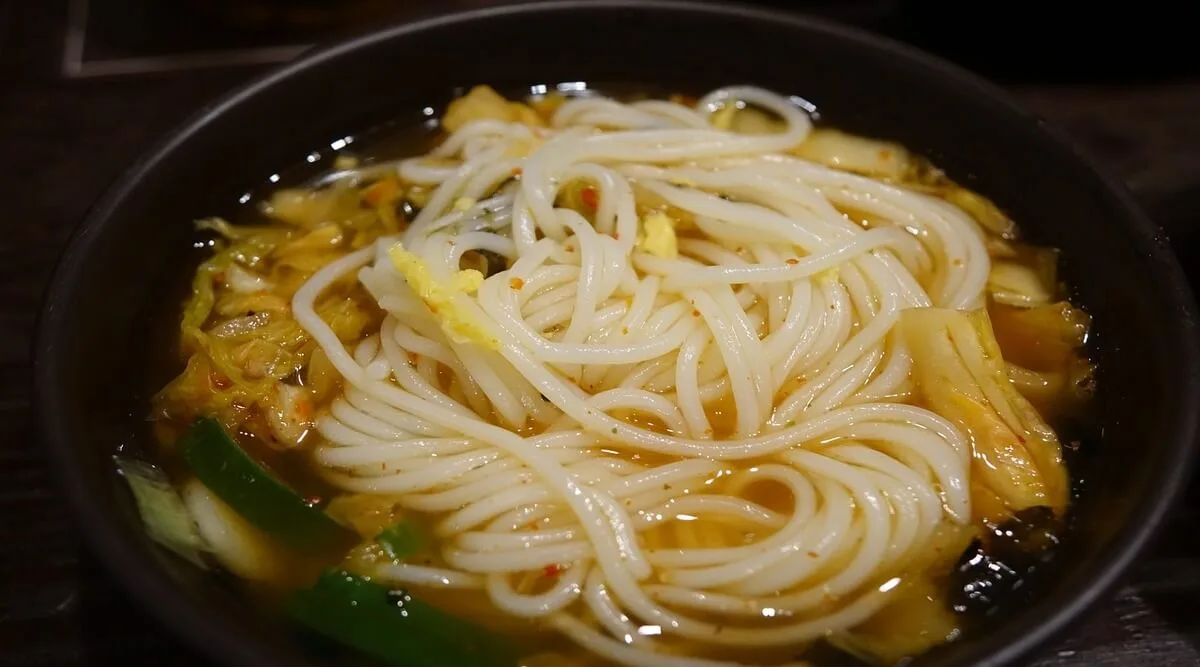Noodles are a very nutritious food, which is generally consumed at different times of the day. And like any other food, we can’t help wondering if eating noodles produces some side effects in the body, specially if we eat them at night.
Though, noodles normally don’t cause discomfort, it can affect certain people considering aspects such as the person’s age, and pathologies.
In this article, we are going to help you by listing 30 possible side effects that can occur if you consume noodles at night.
30 Side effects of eating noodles at night
You must take into consideration that the reaction to foods varies from one person to another, and not everyone can experience these effects; In this particular, if you have concerns about your diet, it is recommended that you consult a health professional. Here are some possible consequences of eating noodles at night:
1. Indigestion
Eating heavy or spicy noodles at night could cause indigestion due to the amount of food or ingredients that are irritating to the stomach.
2. Difficulty sleeping
Carbohydrate-rich foods can increase blood glucose levels, which could interfere with sleep.
3. Weight gain
Eating too many carbohydrates at night could contribute to weight gain if they are not burned off during nighttime activity.
4. Abdominal bloating
Carbohydrate-rich foods can cause water and gas retention, leading to bloating.
5. Heartburn
Spicy noodles or noodles with sour sauces may worsen heartburn in some people.
6. Acid reflux
Eating large amounts before bed could increase the risk of acid reflux.
7. Nightmares
Some people have reported that overeating before bed can increase the likelihood of having nightmares.
8. Upset stomach
Heavy or spicy ingredients could upset your stomach overnight.
9. Changes in blood sugar levels
Large amounts of carbohydrates could cause fluctuations in blood sugar levels.
10. Digestive problems
Undercooked noodles could be difficult to digest, especially at night.
11. Risk of cavities
If you don’t brush your teeth after eating noodles, you could be at risk of cavities due to carbohydrates.
12. Increased thirst
Eating salty foods at night could increase thirst and cause interruptions in sleep due to the need to drink water.
13. General malaise
Some people experience general malaise after a large meal in the evening.
14. Feeling of heaviness
Foods rich in carbohydrates can cause a feeling of heaviness and sluggishness.
15. Change in sleep patterns
Eating large meals at night could disrupt your normal sleep patterns.
16. Gastric discomfort
You may feel an uncomfortable sensation in your stomach after eating too much noodles.
17. Increased blood fat levels
If noodles contain a lot of saturated fat, they could temporarily increase blood fat levels.
18. Decreased sleep quality
Heavy foods could interfere with sleep quality.
19. Restless legs syndrome
Some people report that certain foods can worsen restless legs syndrome, which affects sleep.
20. Changes in heart rate
The sodium content in some noodles can cause temporary changes in heart rate.
21. Allergies or intolerances
If you are allergic or intolerant to certain ingredients present in the noodles, you could experience adverse reactions.
22. Difficulty concentrating:
Poor quality sleep due to a heavy dinner could affect concentration the next day.
23. Elevated insulin levels
Eating too much refined carbohydrates could result in elevated insulin levels.
24. Slow digestion problems
Noodles could stay in the digestive system for longer if eaten around bedtime.
25. Migraine Triggers
Some people are sensitive to certain foods, such as refined carbohydrates, that could trigger migraines.
26. Bacterial growth
Eating late could affect the bacterial balance in the intestine.
27. Difficulty absorbing nutrients
Digestion can be compromised by late eating, which could affect nutrient absorption.
28. Feeling anxious
Some people report feeling anxious after eating large amounts of carbohydrates at night.
29. Changes in energy levels
Overeating could lead to a feeling of fatigue the next day.
30. Alteration of metabolism
Likewise, eating excessive noodles at night could alter normal metabolism.
It is important to note that the amount, type of noodles and ingredients you consume, as well as your own health characteristics, will influence how they affect you. If you have specific concerns about your diet and its effects on your health, it is best to consult a medical professional or nutritionist.
Frequently asked questions
There is no definitive answer to this question, because the choice between eating rice or noodles at night may depend on several factors such as your personal preferences, dietary needs, and individual tolerance to certain foods. In that sense, the key is to choose foods that are right for you, that make you feel good, and that fit your nutritional goals and personal preferences.
Indeed, consuming noodles or other heavy, carbohydrate-rich foods late at night can have an impact on the quality of sleep for some people. Although everyone is different, some people can tolerate carbs in the evening better than others.
If you notice that eating noodles or similar foods negatively affects your sleep, consider adjusting your eating habits and see how it affects your quality of rest.
Of course, spicy noodle dishes consumed in the evening may increase the likelihood of experiencing side effects or discomfort, especially in some people. Remember that food preferences, tolerances, and reactions vary from person to person.
Indeed, eating noodles or other foods late at night can have an impact on circadian rhythms and metabolism. To maintain good health and regular circadian rhythms, it is advisable to try to consume the most calories and largest meals during hours of activity and sufficiently before bedtime to allow for proper digestion.
Opting for lighter, more balanced options in the hours around bedtime could help reduce the negative impact on circadian rhythms and metabolism.
The amount of time noodles (or any food) remain in the stomach can vary depending on several factors, including the type of noodles, the amount consumed, the composition of the food, the individual’s health status, and the efficiency of the person’s digestive system.
In general, noodles do not stay in the stomach for a long time. After a meal, the stomach begins to digest the food and send it to the small intestine for absorption and further processing. For this reason, the time it takes for the entire digestion process can vary, but under normal conditions, food can remain in the stomach for several hours before passing to the small intestine.
Conclusion
The appropriate answer to knowing if you can eat noodles at night is associated at a multifactorial level, and in that particular case, it all comes down to your dietary needs, personal preferences, and individual tolerance to this food.
Therefore, the key is to select foods that are not harmful to you, which make you feel good and obviously, are adjusted to your particular conditions and needs.
Remember that it is necessary to provide your body with the necessary nutrients to enjoy good health, which must be accompanied by a physical exercise plan, and excellent hydration.
Our mission is to have a healthy body and a healthy mind, which is why it is necessary to adapt to a lifestyle that allows us to achieve both.

A. Neomar Evies is a graduate professor with a degree in informatics. A researcher and speaker who has given lectures in various countries. He has extensive experience in the Sports management field and high performance sport and athlete health. He also has a Ph.D. in Sports Science, and a Master in Management. As a writer, he has penned three books in information systems focused on Management and Sports.





